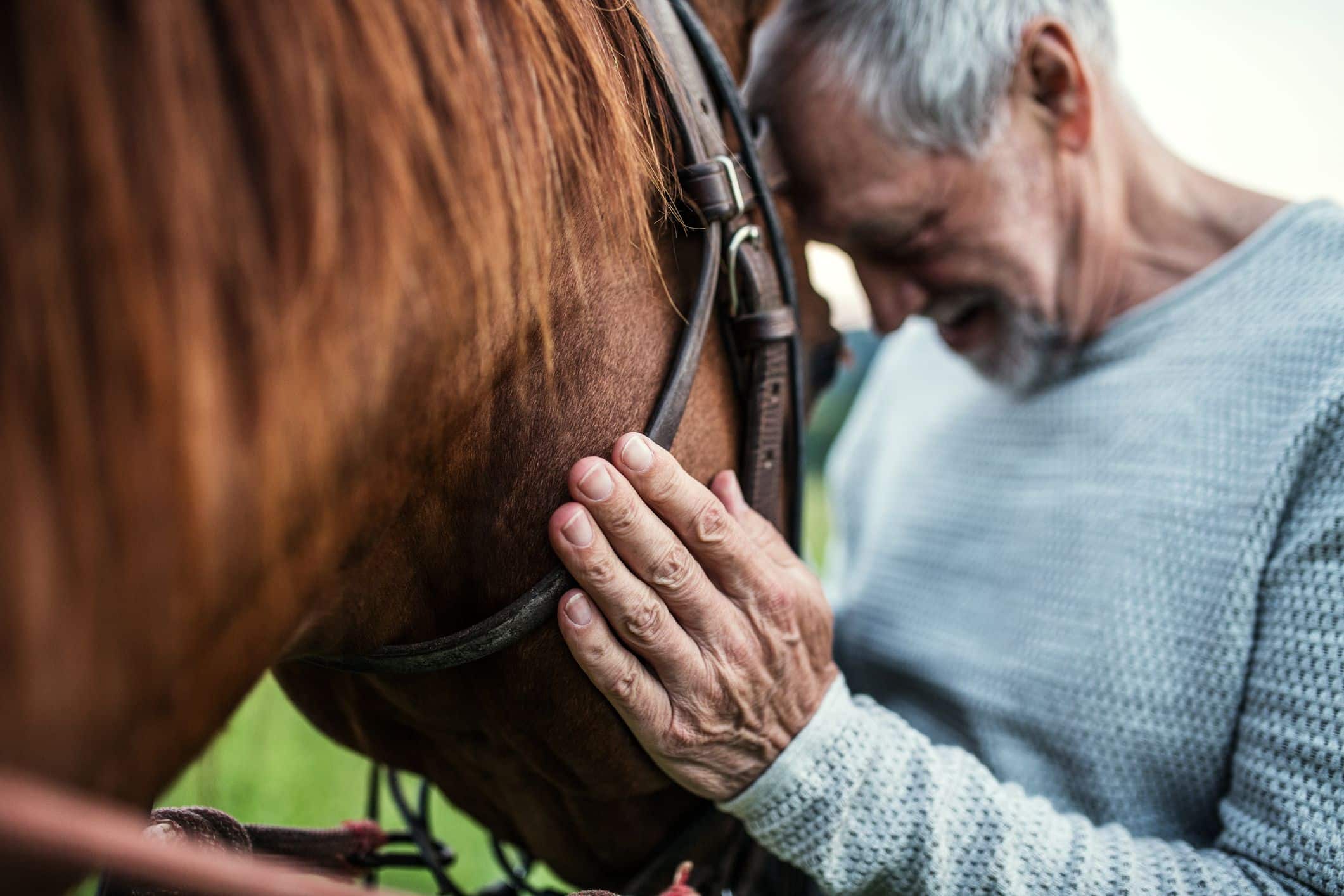At all of our The Best Treatment Center locations, we have incorporated equine-assisted therapy (EAT) into our group therapy programming. A therapist leads sessions, which may involve petting, grooming, feeding, caring for, haltering, or leading the horses. Guests typically do not ride the horses used in equine-assisted therapy.
Horses are used in treatment for substance use disorders because they are able to mirror human actions and emotions, and equine-assisted therapy has become an increasingly popular experiential therapy in the recovery field for this reason. The emotional reflection helps make guests aware of their own actions and emotions, ultimately increasing self-awareness, and helps them to feel recognized.
Therapy With Horses
Working with horses can increase cognitive skills, which can reduce stress and help manage symptoms of mental health disorders such as PTSD, depression, and anxiety, disorders that often co-occur with substance use disorder. Because horses are prey animals, they are highly sensitive to their environment, making them especially responsive to human cues. A horse’s size itself is conducive to change, as guests overcome their own weariness and learn to trust the animal.
Additionally, horses cannot react in the same ways that humans do, so guests can build relationships with horses without fear of judgment or rejection. With the facilitation of one of our therapists, these interactions may become metaphors for human relationships.
Benefits of Equine Therapy
Biofeedback therapy is a mind-body technique that focuses on better controlling involuntary bodily responses, and equine-assisted therapy can be considered one form of this type of therapy. Guests can learn to better moderate their thinking, emotional, and behavioral patterns to reduce negativity, limit dysfunctional thoughts, and enhance perceptions of positivity.
Interacting with horses, whether through grooming or petting, at The Best Treatment Center can relieve stress and boost dopamine and endorphin levels. Because horses care only how you interact with/behave around them, they can prove especially helpful in treating substance use disorder, a disease that is often trying on personal relationships.
Equine Therapy Sessions
Our therapist will lead guests through activities and ask questions— Why do you think the horse reacted a certain way in response to a particular action? How do you think you should reapproach the horse?— to promote thoughtful discussion and consideration of guests’ outward expression of emotions and feelings.

